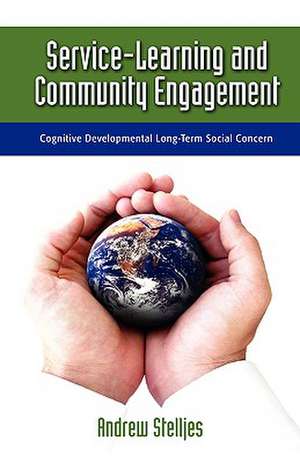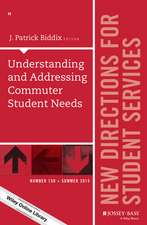Service-Learning and Community Engagement: Cognitive Developmental Long-Term Social Concern
Autor Andrew D. Stelljesen Limba Engleză Hardback – 31 oct 2008
Preț: 563.22 lei
Preț vechi: 612.19 lei
-8% Nou
Puncte Express: 845
Preț estimativ în valută:
107.77€ • 112.30$ • 89.23£
107.77€ • 112.30$ • 89.23£
Carte tipărită la comandă
Livrare economică 03-17 aprilie
Preluare comenzi: 021 569.72.76
Specificații
ISBN-13: 9781604975475
ISBN-10: 1604975474
Pagini: 196
Dimensiuni: 140 x 216 x 14 mm
Greutate: 0.4 kg
Ediția:New.
Editura: Cambria Press
Locul publicării:United States
ISBN-10: 1604975474
Pagini: 196
Dimensiuni: 140 x 216 x 14 mm
Greutate: 0.4 kg
Ediția:New.
Editura: Cambria Press
Locul publicării:United States







